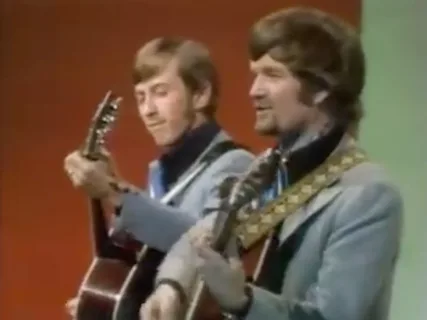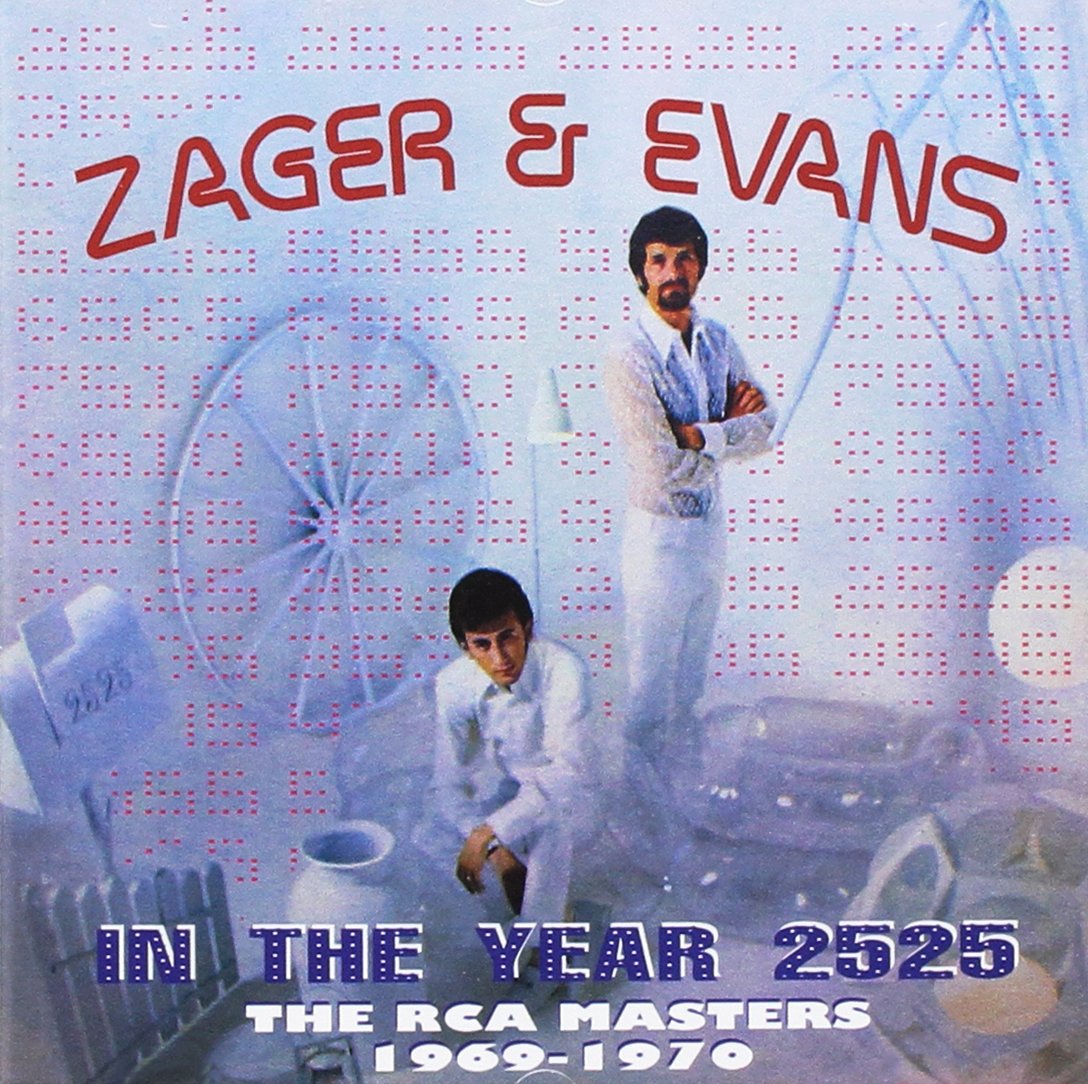
A Haunting Reflection on Humanity’s Future
“In the Year 2525 (Exordium and Terminus)” by Zager & Evans is a poignant, speculative ballad that echoes through time with a message as relevant today as it was at its release in 1969. This song stands as a profound commentary on the potential trajectory of human civilization, exploring themes of technological advancement and existential reflection. Upon its debut, this track captured the imagination of listeners worldwide, soaring to the pinnacle of the music charts. It held the number one position on the Billboard Hot 100 for six consecutive weeks, a testament to its compelling narrative and resonant melody.
The late 1960s was a period marked by rapid scientific progress, societal upheaval, and a burgeoning awareness of both the promise and peril inherent in humanity’s future. Against this backdrop, “In the Year 2525” emerged as an anthem of introspection and caution. Written by Rick Evans and performed by the duo Zager & Evans, the song is structured around a series of chronological vignettes, each depicting a hypothetical future epoch. Its narrative unfolds with an almost prophetic urgency, each verse casting an eerie glimpse into the possible consequences of unchecked technological growth and moral decline.
From its opening lines, the song captures a sense of foreboding. The first verse introduces us to a world where human dependency on technology has reached unprecedented levels. As the timeline progresses—from 3535 to 6565 and beyond—the song paints increasingly dystopian scenarios. These visions are stark: humans reduced to passive recipients of automated care, personal relationships supplanted by mechanized surrogates, and finally, a civilization teetering on the brink of obsolescence.
The haunting refrain acts as both a warning and a lament. It invites listeners to ponder not just what might be lost in such futures but also what can be done in the present to avert them. This is perhaps why “In the Year 2525” resonates so deeply with audiences, particularly those who have witnessed decades of change themselves. For many older listeners, the song serves as a reminder of past hopes and fears about progress—a reflection on their own lifetime’s intersection with history’s larger currents.
Beyond its lyrical content, the song’s musical composition also contributes to its enduring impact. The use of minor chords and a steady, almost hypnotic rhythm creates an atmosphere of inevitability and introspection. These elements combined ensure that “In the Year 2525” is not just heard but felt—a visceral experience that lingers long after its final note fades.
Ultimately, Zager & Evans delivered more than just a hit single; they offered a timeless meditation on humanity’s potential paths. Their work compels us to question our reliance on technology and to consider the ethical dimensions of our advancements. As we continue navigating the complexities of modern life, revisiting this iconic track invites us to reflect on our shared responsibility for shaping a future that honors both innovation and humanity.
For those who lived through the era of its release or who have come to appreciate it since, “In the Year 2525 (Exordium and Terminus)” remains an evocative piece—a musical touchstone that bridges past concerns with future possibilities.
